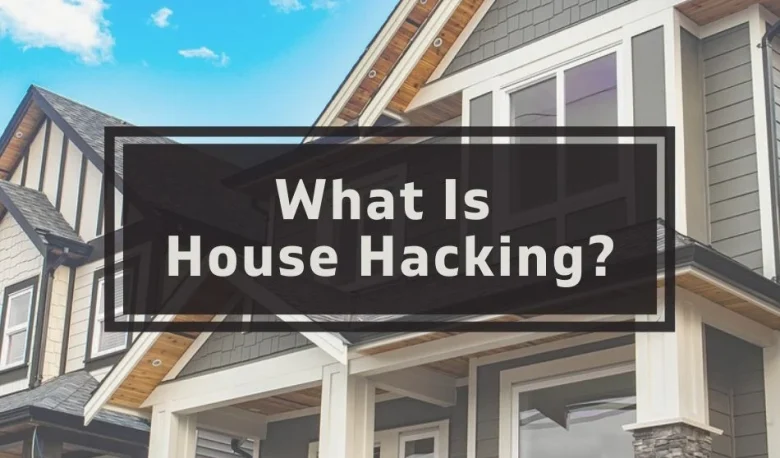A creative strategy that allows people to live for free and still make money in real estate is house hacking. The strategy involves buying a home, living in part of it, and then renting out other rooms or apartments to make money. House hacking allows people to reduce their housing costs and gradually build equity by using the rent to pay off mortgages and other debts. This is a great way for real estate investors and first-time homebuyers to enter the market with less debt.
In addition to the financial benefits, house hacking also promotes property management and financial awareness. This approach is becoming increasingly popular as homeownership changes from an expense to a wealth-building tool. For anyone looking to become financially independent, home renovations can make a big difference if they are planned and executed properly.
Understanding House Hacking:
The idea behind house hacking is to use real estate as leverage to reduce the cost of housing. The owner wants to rent out a portion of the property to generate passive income rather than paying the full amount. This could mean buying a duplex, triplex, or quadruplex and renting out the remaining units while living in one apartment. An accessory dwelling unit (ADU) or a single-family home with an extra room can serve as a home-hacking opportunity. Homeowners can use the rental income to pay for repairs, property taxes, and mortgage payments. As a result, the cost of living has dropped dramatically or even disappeared.
The Economic Benefits of House Hacking:
One of the biggest benefits of home hacking is the financial independence it provides. Homeowners can use the rental income to pay off their mortgages, saving them thousands of dollars per year. Capital growth can be accelerated by reinvesting those funds into more properties. Additionally, home improvement allows people to take advantage of tax deductions, reduce debt through tenant contributions, and increase the value of their home. With this approach, you can build equity over time and create a solid foundation for long-term financial security. Additionally, house hackers can benefit from a larger source of income, which they can use for personal financial goals, emergency savings, or additional investments.
How to Get Started with House Hacking:
To successfully house hack, you must first find the right property. It is crucial to find properties with strong rental demand and favorable financing options. FHA loans have a lower down payment and a simpler application process, making them the choice of many home buyers. The next step after obtaining financing is to evaluate the rental market to determine potential income. To ensure a steady stream of rental income after purchasing a home, homeowners must effectively market their existing units and screen potential tenants. To be profitable in the long run, efficient property management is essential, including maintenance and lease compliance. Homeowners can increase their rental income while reducing their costs by carefully selecting tenants and maintaining their properties.
Difficulties of House Hacking:
While house hacking has many financial benefits, it also has its drawbacks. Managing tenants can be time-consuming and requires good problem-solving and communication skills. Additionally, homeowners need to be prepared for unexpected costs, such as maintenance, vacancies, and legal issues that arise from tenant disputes. Additionally, you may need to set clear boundaries to ensure privacy when living near tenants. It is important to research local regulations before investing. Some cities are implementing zoning restrictions to reduce the risk of home invasions. Despite these obstacles, house hacking can be an effective wealth-building strategy if done right.
Building Long-Term Wealth Through House Hacking:
Remodeling your home is a way to build long-term wealth. It goes beyond just lowering your living expenses. Homeowners can benefit from the appreciation in their home and reinvest the rental income to expand their real estate holdings. Many successful investors started their careers as house hackers before moving into real estate investing full-time. The money you earn from house hacking can be used to diversify your investments, buy more properties, and build a passive income stream. This approach allows people to pursue other life goals, retire early, or eventually become financially independent. Patience, smart decision-making, and continued education about the real estate market are essential for long-term success.
Conclusion:
A powerful and useful way to create wealth without doing anything is house hacking. Homeowners can reduce housing costs, generate passive income, and build equity over time by carefully selecting and maintaining their homes. Despite the challenges, the financial benefits far outweigh the drawbacks for those willing to put in the effort. Whether you’re an aspiring real estate investor or a first-time homebuyer, House Hackers offers a viable path to financial independence. With the right measures and guidance from an experienced investor, anyone can build equity through homeownership.
FAQs:
1. What types of properties are best suited for house hacking?
Duplexes, triplexes, quads, and single-family homes with additional rooms or additional dwelling units (ADUs) are the best properties for home renovation. If you choose a property that is in high demand, you’re more likely to earn enough rental income to cover your expenses.
2. What is the minimum amount needed to start house hacking?
The type of property, location, and available funds all affect the initial investment. With a down payment of just 3.5%, FHA loans make it easier for first-time homebuyers with less money to start their home search.
3. Are house-hacking attacks limited to real estate investors?
No, anyone looking to reduce their living expenses while increasing their net worth can benefit from house hacking. This is a great option for young professionals, first-time homebuyers, and anyone interested in investing in real estate.
4. How dangerous is house hacking?
Risks include tenant issues, maintenance costs, vacant properties, and legal issues. These risks can be mitigated through proper financial planning, property management, and tenant screening.
5. Is house hacking a sustainable strategy?
Many investors use house hacking as a springboard to expand their real estate holdings. House hackers can achieve long-term financial freedom by reinvesting their rent and buying more homes.




